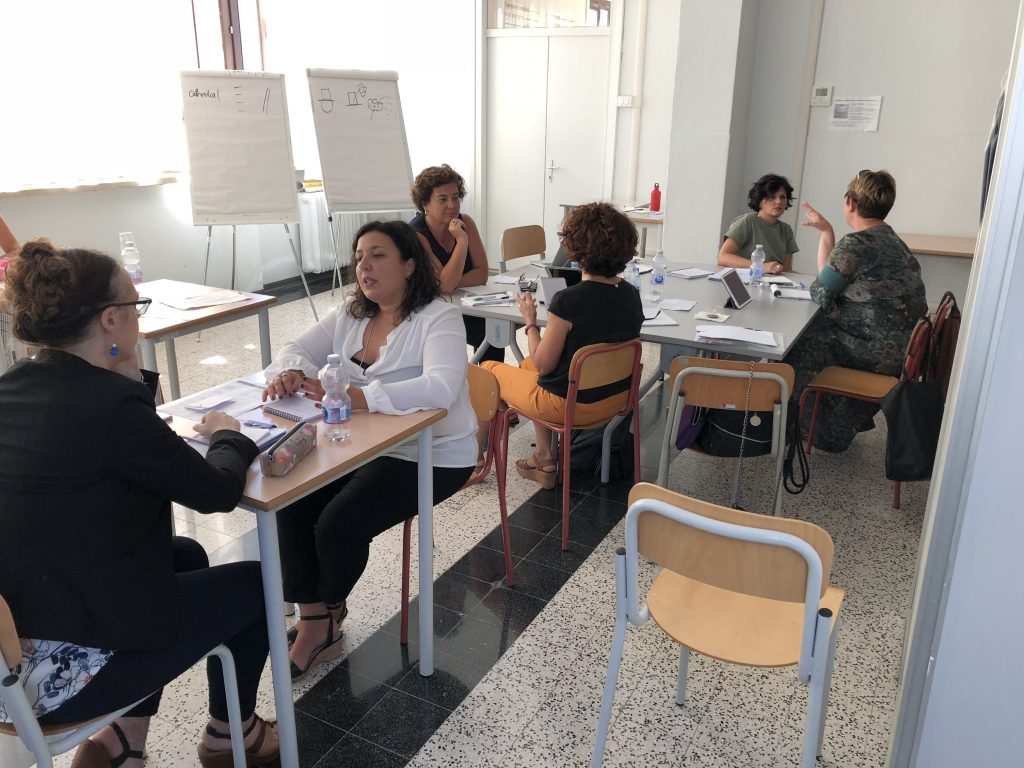
The following article was first published on October 24, 2018 at aiic.net and is reproduced here with permission.
Continued professional development is a win-win
Regardless of whether you ‘need’ to do a course or not, CPD courses are personally and financially rewarding for all interpreters.
The nominal benefits of continued professional development (CPD) – learning something new or honing existing skills – are just the tip of the iceberg. Regardless of whether you ‘need’ to do a course or not, CPD courses are personally and financially rewarding.
Busy interpreters may not have the time; under-underemployed interpreters may not have the money; experienced interpreters may not see the need. There are lots of reasons not to take continued professional development (CPD) courses. However, the reasons in favour of attending are often underestimated by those who don’t.
You might learn something!
Yes, let’s get the obvious out of the way straight away. Whatever type of CPD course you are doing (interpreting skills; knowledge-based courses; language; or ancillary skills) and whatever stage of your career you are at there is always a good chance that you will learn something professionally useful. And the more courses you do the more likely the knowledge and/or skills acquired will be directly useful in your work, giving you some competitive advantage.
Making yourself known to other interpreters gets you work
More often than not when an interpreter needs an interpreter they don’t go to an agency. They either call the interpreter they need directly or ask another interpreter to recommend someone – it’s human nature (and the root of many a corruption scandal) that we prefer people we know over an unknown quantity. So it stands to reason then that if you want to be offered more work you need to make yourself known. You don’t have to judge each potential conversation on its likelihood of getting you work, but the more conversations you have the more likely it is!
Degrees of separation
Even second-hand acquaintance is useful. They say there are only 6 degrees of separation in the world. In conference interpreting it’s probably 2 or 3. The person you’re talking to probably knows someone who would be interested in offering you work at some stage. Somewhere, in a market not so very, very far away a conversation like this is getting someone an offer of work…
“Do you know Joanne Bloggs?”,
“I haven’t worked with her but I met her on a course last year. Seems like a pleasant and serious sort.”
New markets, new customers
You might meet more, and more varied colleagues at a single training event than during a month in the booth. They will be from markets and/or institutions you’re not yet a known quantity. And interpreting is a very small world. Attend a handful of events and you will meet (or make indirect connections to) many of the main players on your, and neighbouring markets. I’m not saying each conversation should be a sales pitch. Quite the opposite. I’m recommending getting into a conversation in the first place!
It’s fun!
It’s fun to learn new stuff. And it’s fun to meet interesting new people. It’s uncanny that, in what many of us see as an often bitchy profession, interpreters get on terribly well when off-duty. Interpreters are inquisitive, interesting people with interesting stories and histories. They make for good conversation! AIIC includes long coffee breaks in its courses to promote this sort of contact.
Motivation
Good customers are regular customers and we stick with them. But that can also lead to boredom. Getting out of your comfort zone and doing something different can inspire you and give you renewed enthusiasm for the same old work. Go take a course!
Find new colleagues to work with or for you
We’ve all been asked if we can recommend an interpreter. Attending training events is a way to expand the pool we recommend from. New colleagues join the market every year and some of them are very good. And you’re more likely to find the young and enthusiastic on a training course than the older and jaded.
The cost of training is tax deductible
In most countries self-employed interpreters can deduct the cost of courses from their tax bill. In some it is even refunded. Either way the course will cost less in real terms than the official price.
The benefits of doing CPD are like a huge colour-by-numbers. It’s hard to see them after doing one course; meeting one person; or colouring in one space. But over time things start to join up and shapes start to appear.
Take the plunge, go take a course!